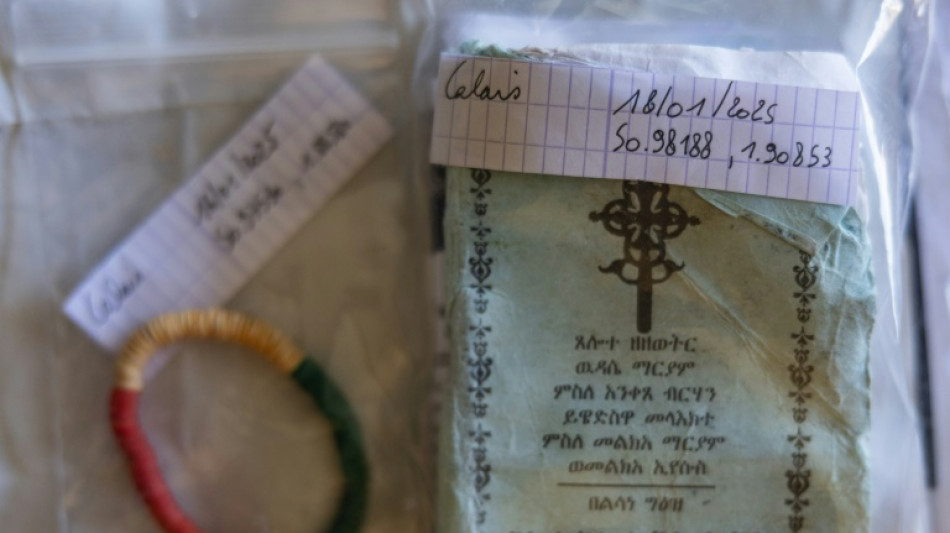
-
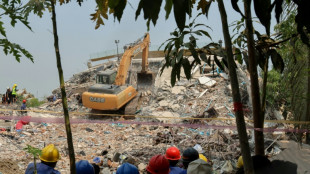 Chinese developer under scrutiny over Bangkok tower quake collapse
Chinese developer under scrutiny over Bangkok tower quake collapse
-
Sirens wail and families cry at Myanmar disaster site
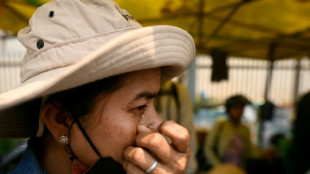
-
 Three things on Australia's former Russian tennis star Daria Kasatkina
Three things on Australia's former Russian tennis star Daria Kasatkina
-
Stock markets rise ahead of Trump tariffs deadline

-
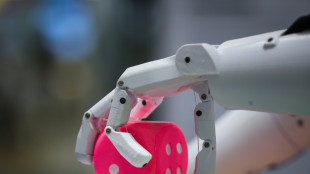 Facing US tariffs, Canadians hunt for business in Europe
Facing US tariffs, Canadians hunt for business in Europe
-
Trumpets, guns, horses: northern Nigeria's Durbar ends Ramadan in style
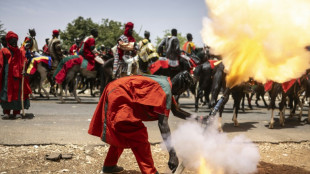
-
 Defiant French far right insists 'we will win' despite Le Pen ban
Defiant French far right insists 'we will win' despite Le Pen ban
-
Hezbollah official among four dead in Israeli strike on Beirut

-
 Liverpool's Slot unfazed by Alexander-Arnold Real Madrid links
Liverpool's Slot unfazed by Alexander-Arnold Real Madrid links
-
Hezbollah official targeted in deadly Israeli strike on Beirut
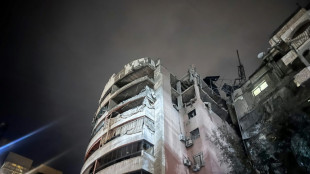
-
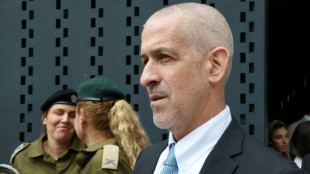 Israel PM drops security chief nominee under fire from Trump ally
Israel PM drops security chief nominee under fire from Trump ally
-
Stock markets edge up but Trump tariff fears dampen mood

-
 South Korea court to rule Friday on president impeachment
South Korea court to rule Friday on president impeachment
-
'Can collapse anytime': Mandalay quake victims seek respite outdoors
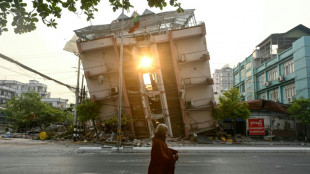
-
 Stock markets edge back but Trump tariff fears dampen mood
Stock markets edge back but Trump tariff fears dampen mood
-
Myanmar holds minute of silence for more than 2,000 quake dead

-
 Kenya president still handing cash to churches despite his own ban
Kenya president still handing cash to churches despite his own ban
-
Israeli strike on Beirut kills three
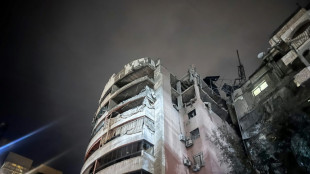
-
 Russia-born Kasatkina says 'didn't have much choice' after Australia switch
Russia-born Kasatkina says 'didn't have much choice' after Australia switch
-
Carmakers face doubts and jolts over US tariffs

-
 China holds large-scale military drills around Taiwan
China holds large-scale military drills around Taiwan
-
'Heartbreaking' floods swamp Australia's cattle country
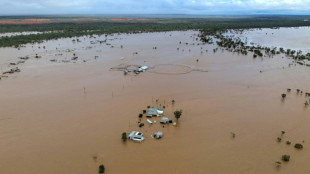
-
 South Korean baseball put on hold after fan killed at stadium
South Korean baseball put on hold after fan killed at stadium
-
Celtics, Thunder power toward NBA playoffs, Lakers shoot down Rockets

-
 French prosecutors demand Volkswagen face fresh Dieselgate trial
French prosecutors demand Volkswagen face fresh Dieselgate trial
-
Sam Mendes to launch four 'Beatles' movies in same month

-
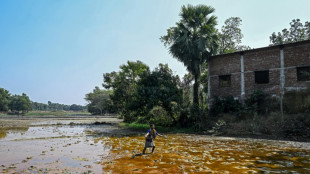 Battery boom drives Bangladesh lead poisoning epidemic
Battery boom drives Bangladesh lead poisoning epidemic
-
South Korea president impeachment ruling Friday: court

-
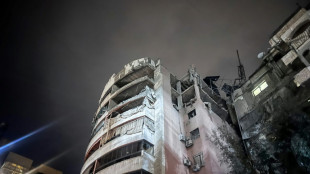 Israel strikes Hezbollah operative in Beirut, kills 3
Israel strikes Hezbollah operative in Beirut, kills 3
-
Desperate Rohingya mark Eid in Indonesia limbo
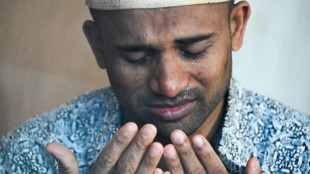
-
 Sam Kerr has 'full support' of Australia squad, vice-captain says
Sam Kerr has 'full support' of Australia squad, vice-captain says
-
Asian markets edge back but Trump tariff fears dampen mood

-
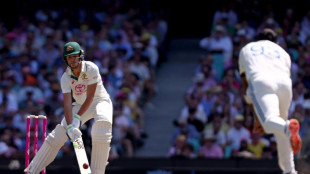 Teenage opener Konstas gets Australia contract with Ashes on horizon
Teenage opener Konstas gets Australia contract with Ashes on horizon
-
S. Korea court to rule Friday on President Yoon impeachment

-
 Myanmar to hold minute of silence for more than 2,000 quake dead
Myanmar to hold minute of silence for more than 2,000 quake dead
-
Far-right leaders rally around France's Le Pen after poll ban
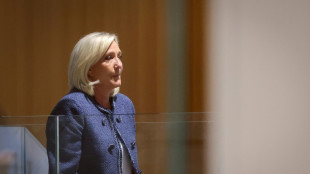
-
 SpaceX launches private astronauts on first crewed polar orbit
SpaceX launches private astronauts on first crewed polar orbit
-
China launches military drills around Taiwan

-
 Political support leading to increasing fallout for crypto
Political support leading to increasing fallout for crypto
-
France's Le Pen seeks to keep presidency hopes alive after election ban

-
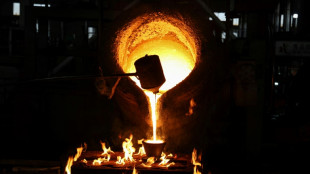 Trump tariffs threaten Latin American steel industry
Trump tariffs threaten Latin American steel industry
-
'Tariff man': Trump's long history with trade wars

-
 Tariffs: Economic 'liberation' or straitjacket?
Tariffs: Economic 'liberation' or straitjacket?
-
Undocumented migrants turn to Whatsapp to stay ahead of US raids

-
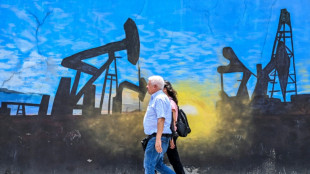 What next for Venezuela as Trump goes after oil revenues?
What next for Venezuela as Trump goes after oil revenues?
-
New Zealand Rugby and Ineos settle sponsorship dispute

-
 China says launches military exercises around Taiwan
China says launches military exercises around Taiwan
-
Team New Zealand fails in bid to host 2027 America's Cup

-
 Electrovaya Receives Purchase Orders for Batteries from Fortune 500 Customer to Re-Power Three Existing Distribution Centers
Electrovaya Receives Purchase Orders for Batteries from Fortune 500 Customer to Re-Power Three Existing Distribution Centers
-
American Critical Minerals Applauds US Presidential Executive Order to Increase / Expedite Domestic Critical Mineral Extraction & Processing - Specifically including Potash


Beachcomber in France hunts fragments of migrant lives
The sand-covered notes outlining a migrant's travel plan to a better life read like an itinerary of hope: from Ethiopia to Sudan, Libya, Italy, on to France and finally, England.
The document had travelled thousands of kilometres by the time it was picked up on a beach in Gravelines on France's North Sea coast by a Belgian who likes to scour the beach in search of interesting things to collect.
Aaron Fabrice de Kisangani, 27, who calls himself a "beachcomber" and a "citizen scientist", carefully unfolded the piece of paper that was soaked, dirty and covered in sand fleas, hoping for clues to the owner's life.
The item is one of many objects migrants leave behind when they board one of the small boats they hope will carry them to the English coast. Sometimes they lose things in the hurry, and sometimes they throw them away deliberately, to travel light.
This is how shoes, clothes, bags and documents belonging to migrants end up strewn on northern French beaches, along with things left by fishermen and visitors.
Over the past two decades, Fabrice de Kisangani has made some unusual finds, including exotic plant seeds and shark teeth. He never used to pay attention to objects left by migrants, until about a year ago.
"I started to think, why don't I take them, because otherwise they will be lost," he told AFP.
The written notes he found probably belonged to an Ethiopian woman called Rose I., at least that is the name scribbled at the top of the page.
Rose meticulously listed cities, journey times and means of transport, drawing arrows between each entry.
The itinerary starts with "A.A." for Addis Ababa, the Ethiopian capital. Eight hundred kilometres (500 miles) and 17 hours by car later comes Metema, on the Sudanese border. "Ten minutes on foot", Rose predicted, would take her to Gallabat on the other side.
- 'Humanise those people again' -
Then on to Khartoum, the capital of Sudan, followed by thousands of kilometres across sand, marked simply as "desert", to Tripoli, in Libya.
Next came the voyage across the sea to Italy, followed by a train journey to France. And then, at last, the final destination: "UK".
Fabrice de Kisangani found many other fragments of exile life during his morning search: a summons for a March 18 expulsion hearing for an Albanian in detention, or tickets from the Romanian capital Bucharest by plane to Paris, and then by train to Dunkerque in northern France.
These objects could help "humanise those people again", because they tell "their story", said Fabrice de Kisangani.
"I want to show the problem from another angle, as a beachcomber," he said, admitting however that he has not worked out yet what exactly to do with the objects.
But in the meantime, the finds taught him "a lot" about the migrants, "about how they travel and how fast", the beachcomber said, adding he often does research to find out more about their home countries and "why they are fleeing to the UK".
Walking back to his car, Fabrice de Kisangani saw a scene playing out in the distance that has become commonplace around here: dozens of migrants emerging from the dunes and running towards a boat waiting in the water. At first they were stopped by police but, in another attempt a few minutes later, most managed to climb aboard.
A child could be heard crying. A man, one of three members of a family who didn't make it, urged his mother to climb back off the boat, without success.
Such existential scenes, illustrating the undertaking's fragility, are never documented in the objects jettisoned on the beach. The final pieces of the puzzle remain elusive.
Did Rose, the travel plan author, ever make it to England? Did she stick to her itinerary?
On this, the notes are silent.
P.Silva--AMWN